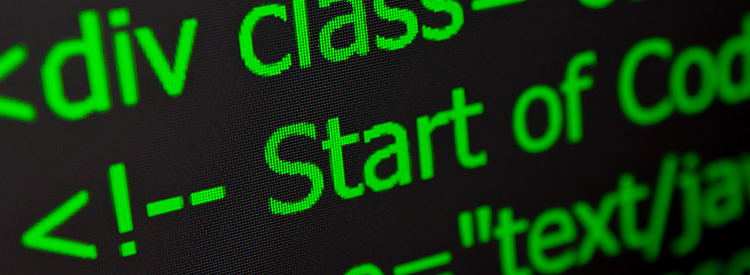Klaus Schwab, the founder and executive chairman of the World Economic Forum, defines this era - the moment in history when technology began to affect almost every facet of everyday life - as the Fourth Industrial Revolution. For some, the era may signal peril, but those that understand the underpinnings of technology–computer code–believe it is a time of immense opportunity and that the ability to communicate through computer programming is a critical step in accelerating human evolution.

Kathryn Parsons, co-founder and co-CEO of Decoded helped demystify the digital age during a recent RBC Investor & Treasury Services forum and explained why her organization, Decoded, has set out to teach the world how to code.
Modern language is made up of 0's and 1's
Though the numbers vary, experts agree that many of today's workforce will be disrupted in the coming years as a result of automation and artificial intelligence.
“The world is changing, everything is being impacted by technology, all our lives, our behaviours, every single industry, role, economy. It's all being impacted by ones and zeros, the language on the screen," said Parsons.
Parsons, a Latin and Greek major, explained how frustrated she felt before learning the language that seemed to be impacting everything around her. After graduating from Cambridge she decided to change that, and now finds the modern language of technology to be far more empowering than the ancient.
Key insights
- As technology becomes more pervasive, every business is being affected, yet few consider themselves truly literate in how code-based tools work
- To thrive in the digital age, individuals should learn how to communicate with computer systems through programming code
- Traditional educational institutions have been slow to adapt to a changing world, but some innovative organizations are enabling the widespread adoption of coding skills, and some large organizations have already enrolled their entire staff in coding programs
“Computer programming is the language of today, because how can you imagine an idea in a void of knowledge? How can you make a decision when you don't know the options that are possible? And how can you communicate that idea to someone who is technical?" she said. “You can't do it if you don't have the right vocabulary."
Decoding coding
By putting the power of binary language into the hands of everyday people, Parsons says her company, Decoded, is providing them with the tools and language they need to thrive in the modern world. She believes that teaching computer programming as a modern language to as many people as possible is the next step in a line that extends from the printing press to the smartphone.
“The most seismic moments in human civilization happen when you put powerful but simple tools in the hands of human beings that enable them to spread knowledge, ideas and information," she said. “This isn't just a knowledge revolution, which it is, but this is also a skills revolution, which to me makes it potentially one of the most exciting moments in history."
Parsons adds that Decoded was established to usher in this new revolution. In a few short years, the organization has grown from teaching 10 people around a kitchen table in London to operating in 85 countries and across the web.
Learning is now the job
According to Parsons, organizations that understand the power of coding put themselves at a significant advantage in the modern era. She explains that it is hard to solve problems when you do not understand how to use the tools that are available. Parsons points to a number of companies that have taken her call to action seriously, including GE, which began calling itself a 250-year-old startup after developing a new data platform and requiring all new hires to learn how to code.
“They needed coders, programmers, developers and engineers to create this new data platform, but they also needed people to be able to create products and services on top of them," she explained. “Everyone needed to be digitally literate, including the sales people and managers, so that they could communicate that new platform to customers and each other."
Other organizations, like ING, have championed similar efforts to teach their workforce how to innovate in a digital world. "For all of these companies there's a common theme; learning is now the job," she adds.
The technological revolution may strike fear into some, but for those that learn how to communicate with its underlying systems through coding, the future ahead is promising. By understanding and being able to communicate via computer code, the human workforce will be equipped to solve the increasingly complex and technology-oriented problems of the modern age.
Source
- RBC Investor & Treasury Service's forum (September 6, 2017) Kathryn Parsons, “The future of work and what it means to lead in a digital age"

